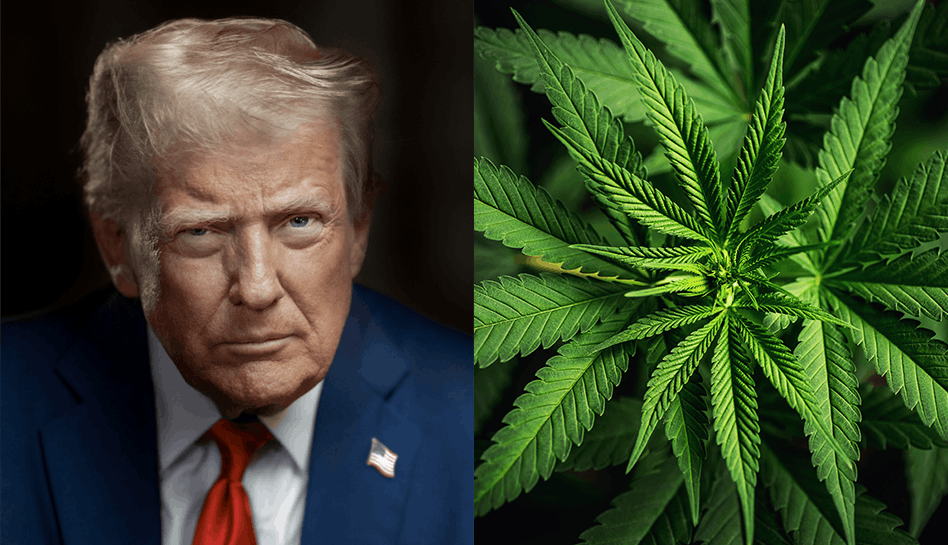UPDATE: President Donald Trump said Aug. 11 that he will make a decision on cannabis rescheduling “over the next few weeks.” That story is here.
More than 200 days into his term, President Donald Trump has yet to make good on his campaign promise to “unlock the medical uses” of cannabis to a Schedule III drug. Furthermore, he has yet even publicly address the issue of rescheduling.
Instead, the president’s stance on how the plant should be scheduled appears to be a privilege reserved for $1 million donors, who recently attended a private dinner at his golf club in Bedminster, N.J., according to reports from The Wall Street Journal and CNN.
While any mention of cannabis policy—public or private—stimulates industry optimism, Trump’s position on reclassifying cannabis to a less restricted spot under the Controlled Substances Act (CSA) could be perceived as less certain now than it was before his election.
“That’s something we’re going to look at,” Trump reportedly told a small gathering of well-pocketed donors during the dinner event, according to the media outlets. Neither outlet named its sources; however, The Wall Street Journal reported that Trulieve CEO Kim Rivers attended the event.
Merely “looking at” how cannabis is currently scheduled—alongside heroin, LSD and ecstasy—is a step back from September 2024 campaign language, when Trump publicly said he’d focus on cannabis’s medical uses: Under the CSA, only substances with no medical value can be classified under Schedule I.
Trump also promised nearly a year ago that, as president, he would work with Congress to provide traditional banking services to state-sanctioned cannabis businesses and support states’ rights to legalize cannabis and provide access to adults.
Since taking office in January, Trump has touted an “unprecedented” track record, including his first 200 days of “winning,” and that “the best is yet to come.” However, the executive branch’s current rescheduling process, initiated under Joe Biden’s administration, has remained at a standstill since early January, when a now-retired Drug Enforcement Administration (DEA) chief administrative law judge granted an interlocutory appeal.
Now, Trump’s most recent comments of promising to “look at” how cannabis is scheduled align with the noncommittal remarks that DEA Administrator Terrance Cole made before he was confirmed and sworn in on July 23.
Cole said during his confirmation proceedings in April and May that moving the cannabis rescheduling hearing process forward would be “one of my top priorities” and that he would “give the matter careful consideration.” However, after his confirmation, Cole omitted cannabis rescheduling from the list of his top eight strategic priorities.
While Cole is presumably in a position to sign off on a final rule to potentially reschedule cannabis, some would argue that former Attorney General Merrick Garland undelegated that authority under the proposed rescheduling rule he signed in May 2024.
Regardless, many cannabis industry stakeholders believe the final decision comes down to a directive from the top: Trump.
Behind the scenes, White House advisers are currently divided on whether reclassifying cannabis to a Schedule III drug would be a smart political move ahead of the 2026 midterm elections, CNN reported. However, White House spokeswoman Abigail Jackson said any decision wouldn’t be politically motivated.
“All policy and legal requirements and implications are being considered,” she told the news outlet. “The only interest guiding the president’s policy decision is what is in the best interest of the American people.”
The American people believe cannabis legalization is in their best interest, with 70% of U.S. adults favoring the policy shift, according to Gallup pollsters.
The news of Trump’s private dinner comments in New Jersey follows Scotts Miracle-Gro Chairman and CEO James Hagedorn, a “major” fan of Trump, telling Fox Business News on July 31 of private conversations he had with the president.
Hagedorn said Trump told him “multiple times” since being elected that he will move on cannabis reform.
“I think there’s one person who could change it, and he’s told me and others that he will, and that’s the president of the United States: Donald Trump,” Hagedorn said of cannabis rescheduling. “What [Cole] needs to hear is a call from the president or the chief of staff saying this is a promise he made during the campaign, and promises made are promises kept.”
While the impacts of rescheduling cannabis would fall short of completely descheduling, loosening federal restrictions on the plant to Schedule III would allow licensed cannabis businesses to deduct ordinary business expenses—such as payroll, rent and utilities—from their federal taxes under Section 280E of the Internal Revenue Code.
Meanwhile, a Schedule III listing alone won’t solve many of the industry’s other barriers, from criminalization to industry banking problems, interstate commerce, medical cannabis access and research opportunities. However, it could open the door for Food and Drug Administration approval of more cannabinoid-based medicines.
Minimally, the incremental reform would likely sway public opinion further in support of cannabis legalization and add legitimacy in the medical community for the plant’s currently accepted benefits in the eyes of the federal government.
Furthermore, if cannabis rescheduling crosses the finish line under a Republican president, the already bipartisan issue could accelerate toward further reform.





